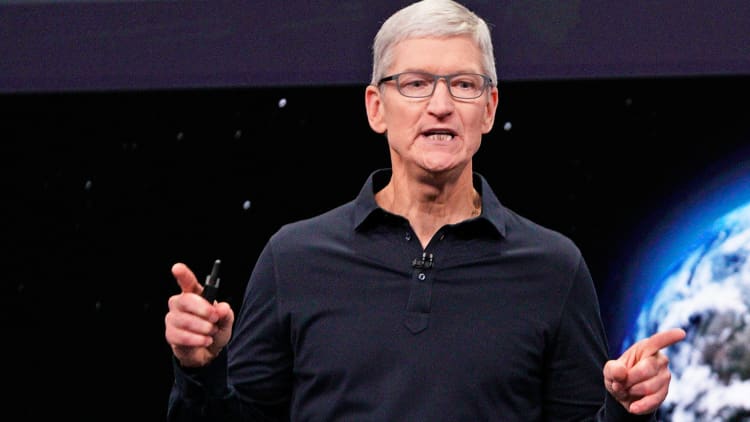Apple made two changes to its software on Monday during its WWDC conference that address concerns made by competitors that the iPhone maker yields excessive control over its platform.
When iOS 14 is released this fall, iPhone users will be able to change their default mail and browser apps from Apple's Mail and Safari apps, Apple said on its website. Upon clicking a link of an email address or composing a new message, their preferred app will come up, instead of Apple's offering.
Apple's HomePod smart speaker will also support third-party services music services, the company said in a presentation slide on Monday, addressing one of Spotify's main complaints to European Union antitrust regulators that Apple unfairly favors its own music-streaming service.
Apple's WWDC conference is taking place virtually as the company's platform is under increased scrutiny. Officials in the U.S. and Europe are looking into whether Apple's control of its App Store could be anticompetitive, and top app makers are criticizing the practice of taking a 30% cut of digital services as well as its approval process.
If the changes are successful at addressing competitor complaints, they could point to a path forward for Apple as it navigates antitrust scrutiny. An Apple representative didn't immediately return a request for comment.
Last week, scores of developers revolted on social media about App Store rules, after the makers of email app Hey said that Apple threatened to remove their service over a requirement that it use the company's payment system for subscriptions, which would hand over 30% of sales to Apple. In what the developers called a "truce," Apple eventually approved a Hey update over the weekend.

Apple did not mention the Hey app controversy during its presentation. Nor did it discuss either the default apps feature or third-party music services for the HomePod speaker.
The ability to set a default app or play Spotify on a HomePod speaker only addresses some of the issues critics have cites. Other concerns remain, such as the size of Apple's cut, the App Store review process and Apple's proclivity to release new features on its platform that compete with third-party developers.
Still, both features announced on Monday had been questioned as part of antitrust proceedings and had long been requested by developers and competitors.
Last fall, the U.S. House Judiciary Committee's antitrust committee posed questions to Apple, including whether iPhone users can uninstall Safari and whether they could set another browser, such as Google Chrome or Firefox, as the default browser app on an iPhone. At the time, iOS did not allow users to change the default mail or browser app. Developers have requested the ability to set default apps for years.
"iPhone users cannot set another browser as the default browser. Safari is one of the apps that Apple believes defines the core user experience on iOS, with industry-leading security and privacy features," Kyle Andeer, Apple's vice president of corporate law, said in a letter in response.
Ongoing antitrust issues
The committee's antitrust panel is working to get Apple CEO Tim Cook to testify on competition topics, alongside chief executives from Amazon, Facebook, and Alphabet, Politico reported last week.
As part of its complaint to the EU last year, Spotify specifically pointed out that its service did not run on Apple's HomePod speaker while Apple Music did, although its main complaint was in regards to Apple's 30% take rate.
"Apple also routinely blocks our experience-enhancing upgrades. Over time, this has included locking Spotify and other competitors out of Apple services such as Siri, HomePod, and Apple Watch," Spotify CEO Daniel Ek wrote at the time.
The European Commission announced a probe into Apple's App Store and Apple Pay last week.
This spring, Tile, the maker of a digital tag for finding lost items, testified that it was concerned that Apple would release a competing product and deny it access to core iPhone features needed for its product to work. Apple announced an accessory program on Monday to more closely integrate lost item trackers into Apple's products.
Representatives from Spotify and Tile didn't immediately respond to requests for comment.



